It is not much of an issue just now, but it could become one if the idea of a caste census captures the socio-political imagination, going beyond electoral tags and identities, predicts N Sathiya Moorthy..
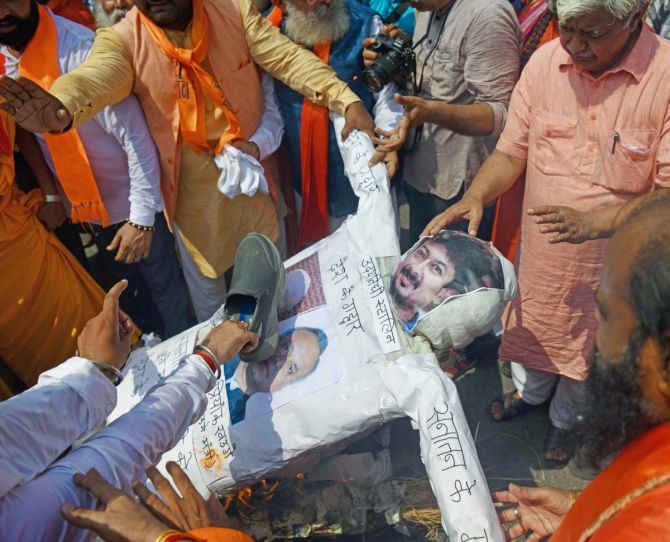
If someone thought that the recent nation-wide Sanatana Dharma debate would 'reaffirm' the ruling Bharatiya Janata Party's 'Hindu majority vote-bank' in next year's Lok Sabha elections, it now has the potential to divide it on caste lines, as happened with the Mandir-Mandal row at the height of L K Advani's Ayodhya rath yatra more than three decades ago.
And the caste-based census in Bihar, where less than 16 per cent of the state's population alone falls under the 'general category' outside the 'reservations' tag for jobs and education, has the potential to trigger similar demands all across the country, which the Opposition INDIA combine has anyway promised (if it came to power).
Truth be acknowledged, 'caste' might not have become as big an issue as it otherwise is likely to in the coming months and years had it not been for the BJP's bid to retain the Hindu vote-bank' in the name of defending Sanatana Dharma, after Tamil Nadu's DMK Minister Udhayanidhi Stalin kicked off a controversy.
No, it is not much of an issue just now, but it could become one if the idea of a caste census captures the socio-political imagination, going beyond electoral tags and identities.
In a way, this again may apply to temple properties in states like Tamil Nadu, which Prime Minister Narendra D Modi flagged in Telangana recently.
The DMK's ideological grandfather in the then ruling Justice Party was behind the 'nationalisation' of all Hindu temples across the then Madras Presidency, comprising present day Tamil Nadu and parts of unified Andhra Pradesh, Kerala and Karnataka close to a hundred years ago.
There are multiple arguments for and against this and related issues, including the PM's focus question why the (presidency/state) government did not take over churches and mosques.
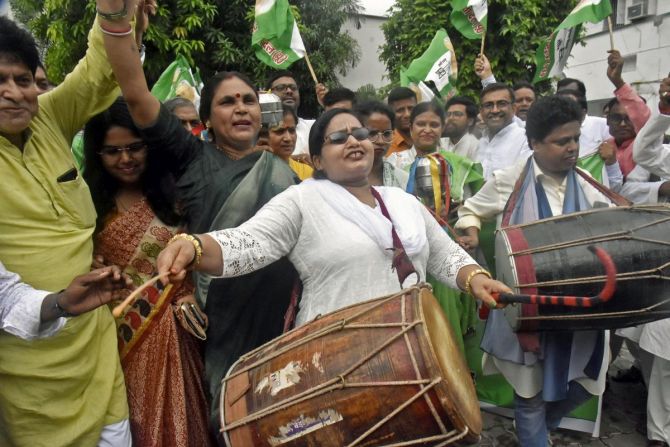
It is anybody's guess why the PM should have flagged what is near exclusively an issue centred on Tamil Nadu in a neighbouring state when he anyway has been visiting Tamil Nadu off and on.
That's because assembly elections are due in Telangana later this year.
Earlier, he had responded to the Sanatana Dharma issue likewise in distant Madhya Pradesh, where assembly elections are due later this year -- along with Rajasthan.
Clearly, the PM and hence the BJP have found a new politico-electoral use for religion which was not in their original agenda -- which comprised Ayodhya, Article 370 and the uniform civil code.
With the Modi government meeting its electoral commitments on these three issues, they might have outlived their electoral utility already.
Yes, the Ayodhya temple consecration, if it is to occur before the Lok Sabha polls, may be an electoral draw.
Yet, it may not be as big a political issue as the Babri Masjid demolition in December 1992 was.
Once the demolition was behind it, Uttar Pradesh itself voted against the BJP and in favour of the newly-formed Samajwadi Party-Bahujan Samaj Party combine, just 11 months later, in November 1993.
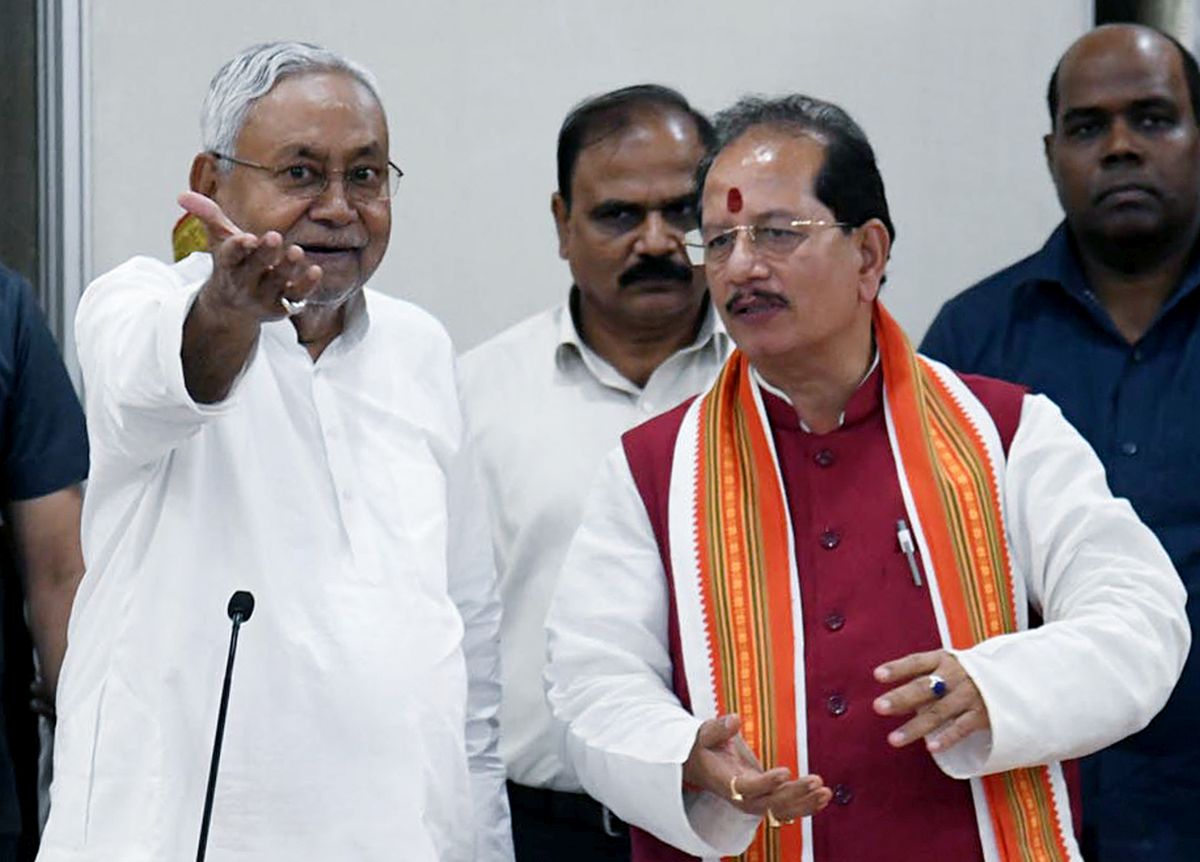
If Home Minister Amit A Shah and Defence Minister Rajnath Singh had followed the prime minister on the Sanatana issue a few weeks ago, Uttar Pradesh's BJP Chief Minister Yogi Adityanath has possibly 'woken up' late to declare that Sanatana Dharma is the only religion.
Coming as it did alongside the publication of data on the caste-based survey in neighbouring Bihar, Yogi's declaration now has the potential to open up a Pandora's box in his state, too.
Conversely, the more demands for caste surveys and census and reservations are raised, there is an equally greater chance and opportunity for the BJP and at least some of its allies to package it as a 'divisive agenda' against their 'national unification call' centred around religion -- rather, just one religion.
Yet, it is here that the Opposition may have an advantage, handed out by the BJP itself.
Having delayed the decennial Census from 2021 to 2026, the ruling party may be readily offering an occasion for the Opposition combine to promise a caste-based Census the next time round.
Though the government blamed it on COVID-19 pandemic and lockdown, once the Census becomes a subject of a politico-electoral debate, then motives would be attributed for it -- putting the ruling party on the defensive.
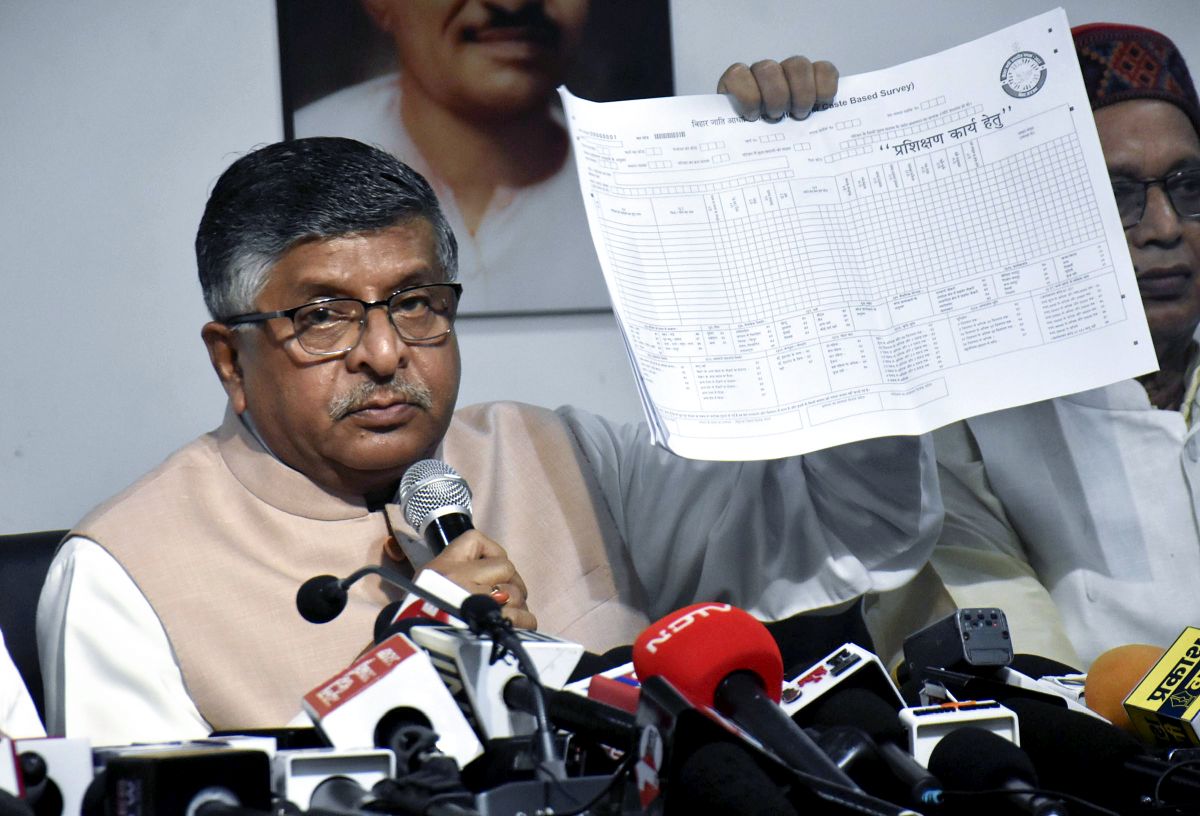
That Modi and the BJP are better off while put in adverse situations goes without saying, but their audience from public platforms and social media may not be the ones who will be the beneficiaries of caste-based census.
Thankfully for them, the Opposition is yet to prove that they have the kind of delivery mechanism to take on that of the BJP at the grassroots level, especially when it concerns the interests and aspirations of those very people.
There is still the possibility of Opposition-ruled states ordering caste-based surveys in a hurry, forcing the hand of the BJP at the Centre if the latter found that it is a potential election threat.
Going by past experience, no one should be surprised if the BJP too actively considers the wisdom of ordering a caste-based census in 2026, before the Opposition alliance gets its act together.
In such a scenario, the BJP has better credibility as the party in power with a strong parliamentary presence already, and a stronger leader at the helm.
If it happens thus, then the Opposition, in turn, might have handed over the Lok Sabha poll to the BJP on a platter in ways that the latter had not assumed and thought of, if not hoped for, earlier.
In assuming that Sanatana Dharma and temple properties (even if only in Tamil Nadu) can be a major electoral issue, whether across the nation or in select states and/or regions, the BJP leadership may be assuming more than they could otherwise afford to.
Especially in states like Tamil Nadu, where they are unsheathing the Hindutva sword one more time through the past several decades.
In Tamil Nadu, as in the rest of the country, gods and temples are different from temple management.
The common man devotee from distant villages troops to a famous temple in the neighbourhood or afar only with faith and devotion in mind.
He is least concerned or even knowledgeable about the wealth that the temple possessed -- or, has been deprived of by intermediaries, be it the government or hereditary trustees or others.
Where the government is not involved -- and it does not stop with Tamil Nadu -- there are temple trusts and boards, who are allegedly accused of 'looting' temple properties one way or the other.
It is the elite devotee who may be concerned in the name of god or politics or both.
Given a chance to administer those temples, the same charges have befallen them, too.
If there is a difference, it is only about the quantum and character of the loot.
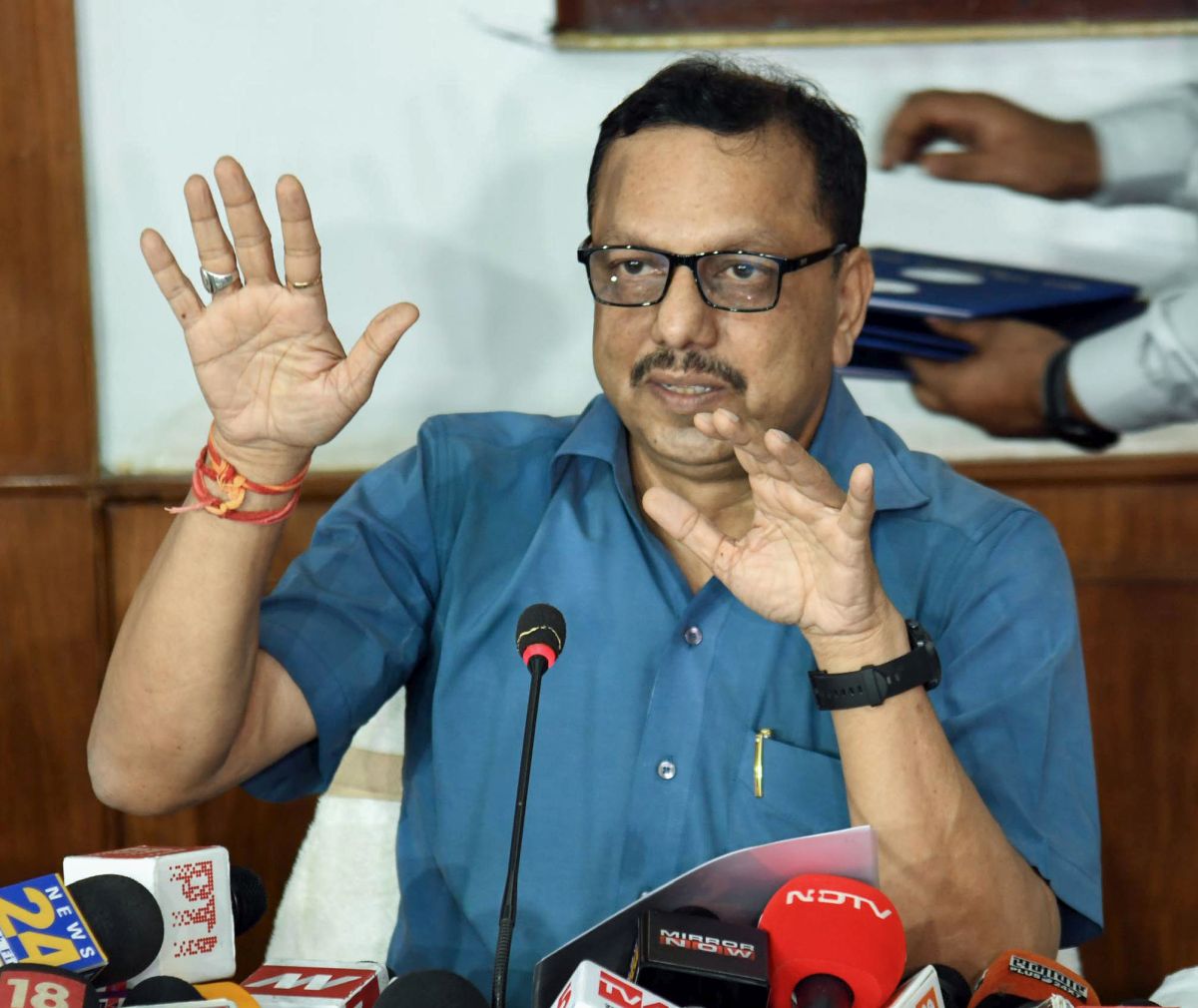
Then, there is the more serious issue. For most common man devotees of propertied temples and deities, their greater devotion is to their village gods and goddesses.
They have had no problems collecting and paying periodic levies to village/temple committees for funding annual festivals and daily rituals, if it came to that.
If temples still ended up being locked up for want of local patronage, they do not blame it on the government. That thought does not even occur to them.
This may be true of every village community across the country, and more so in Tamil Nadu, where religiosity and temple worship have only increased through the hundred years of government-run temple administration, in the form of the state Hindu Religious & Charitable Endowments department.
Much of this period also coincided with E V Ramaswami Naicker's 'anti-Hindu, anti-god, hence anti-Brahmin' diatribe and street protests, where gods and their consorts were berated and their pictures were beaten with slippers.
This is the reason why religion and gods was never ever an election issue in the state.
If someone thought that Lord Ram and Lord Krishna are 'alien gods' situated in the distant north, hence no local connect with the Ayodhya issue then and now, the annual Ganesh festival procession introduced into the state since the 1980s too has fallen flat as a politico-electoral issue after a point.
In context, then state BJP president L Murugan's Vetri Vel Yatra to defend and protect the divinity and dignity of 'Tamil god' Murugan, after a fringe anti-god group had denigrated him ahead of the 2019 Lok Sabha polls, that too did not help.
There is something real that the BJP and its ideological RSS peer has been missing while seeking to relate religious issues to electoral contests at least in Tamil Nadu.
At a time when caste becomes central to livelihood issues that are centred on identification and reservation in contemporary times, there is a greater chance that it has a greater electoral pull than even religion.
In Tamil Nadu, for now, PMK leader and former Union minister Anbumani Ramadoss has already sought caste survey on the lines of Bihar.
His party is a product of the northern Vanniar community's struggle for a 'backward class' tag in the late eighties and early nineties.
Ramadoss has pointed to the 69 per cent reservations in the state and the lesser-remembered provision in the Supreme Court's verdict in the 'Mandal case' (Indra Sawhney vs State of Karnataka, 1992), fixing a 50-per cent upper-limit for all reservations in all governments across the country.
Under this provision, the Supreme Court allowed individual state governments to justify a quota higher than 50 per cent by providing convincing arguments, supported by data.
Both the DMK and AIADMK governments of chief ministers Karunanidhi and Jayalalithaa followed it up by appointing committees to prepare the state's case for 60 per cent reservations.
Without having the time, equipment and resources to cull out primary data, the committees borrowed the data from the national Census figures.
A demand for a caste survey in the state could thus become a major poll issue by itself, especially if the DMK state government does not decide on it early.
N Sathiya Moorthy, veteran journalist and author, is a Chennai-based policy analyst and political commentator.
Feature Presentation: Rajesh Alva/Rediff.com

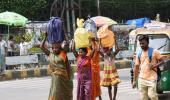








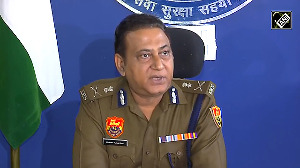
 © 2025
© 2025